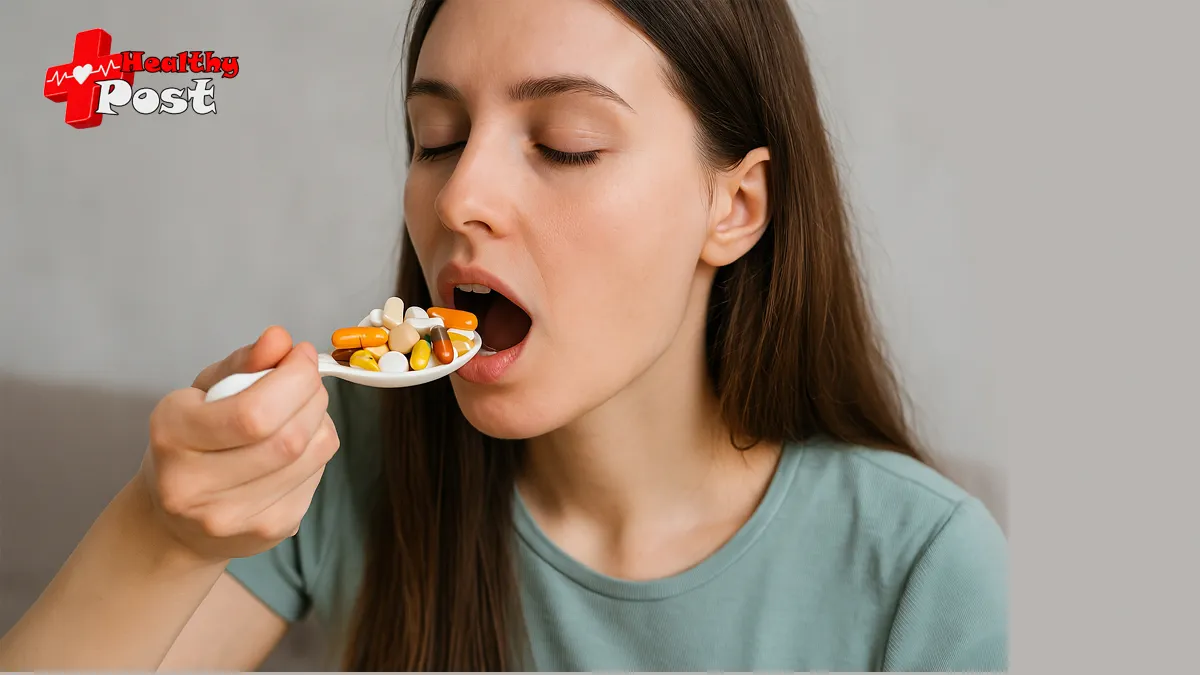
What medications are harmful to the stomach?
All medications should work for the benefit of our body. Without this, the meaning of their use is completely lost. But, unfortunately, many drugs, helping in some specific case, can harm other organs.
Ibuprofen and other NSAIDs
Non-steroidal anti-inflammatory drugs (diclofenac, ibuprofen, ketorolac, etc.) are usually used frequently – for pain or increased body temperature. They quickly give the desired effect, and the person feels better.
But, unfortunately, their mechanism of action is designed in such a way that it blocks the secretion of protective factors of the gastric mucosa, which is very bad, given the fact that the stomach is full of acid, and it is very concentrated.
As a result of a pronounced “imbalance” between protective factors and aggressive factors, damage to the mucous membrane occurs, leading to the formation of erosions and ulcers.
And sometimes such damage to the mucous membrane can be asymptomatic, and the patient does not even know about their existence and does not begin treatment.
Aspirin and other salicylates
In more mature age, salicylates (aspirin, cardiomagnyl, thrombo-ass, etc.) are prescribed quite often to thin the blood. This group of drugs also has an ulcerogenic effect, that is, it attacks the mucous membrane until erosions and ulcers appear.
Mucosal lesions may occur without any clinical manifestations, so it is worth doing a gastroscopy from time to time to assess the condition of the mucosa of the upper gastrointestinal tract.
I would like to draw special attention to the risk of bleeding from erosive and ulcerative defects – if it does happen, it can be quite profuse, because salicylates change the rheological properties of blood (it becomes more liquid and fluid). A fatal outcome is very likely if the patient is not helped in time.
Tetracycline and other antibiotics
Some antibacterial drugs, especially tetracycline, clindamycin, erythromycin and others, also significantly aggressively attack the gastric mucosa. Therefore, it is very important to follow the strictest diet during their use.
Fortunately, in most cases, there is no need to take antibiotics for a long time, so with a balanced diet and protection of the mucous membrane, the risk of developing dangerous complications is reduced.
Paracetamol
This drug can damage the mucous membrane up to the formation of erosions and ulcers. The so-called dose-dependent effect always works – the higher the dose and the more often the drug is used, the higher the probability that the mucous membrane will be damaged.
Prednisolone and other glucocorticosteroids
Such drugs as prednisolone, metipred and others are also known for their harmful effect on the gastrointestinal mucosa. The greatest danger is their long-term use in high doses. The higher the daily dose and duration of use, the greater the chance that a problem with the mucosa will arise.
From time to time it is worth doing a gastroscopy and taking a stool test for occult blood.
Ways to solve the problem
Drug therapy. The lower the dose and duration of use of the ulcerogenic drug, the better. But, unfortunately, there are cases when drugs have to be taken quite often. To reduce drug aggression on the gastrointestinal mucosa, drugs of the rebagit (rebamipide) group are usually used. They enhance the secretion of the mucosa’s own protective factors – bicarbonates, prostaglandins, improve microcirculation and mucus secretion.
Diet. It is very important to adjust your diet and lifestyle during the period of taking aggressive drugs. Fatty, fried, spicy, smoked, highly salted foods and fast food should be completely excluded.
A safe diet includes lean meat (lean beef, veal, horse meat), fish (sea and river lean varieties) and poultry (chicken, turkey, etc., but the skin should be remove and discarded).
Buckwheat, pearl barley, spelt, rice, zucchini, squash, cabbage (white cabbage, broccoli, Brussels sprouts), carrots and many other vegetables and cereals can be used as a side dish, if they are chemically neutral. It is better not to use radishes, tomatoes, eggplants and other similar products.
Method of preparation. Food can be boiled, stewed, cooked in a multicooker, pressure cooker, oven and microwave. It is strictly forbidden to fry, smoke, shashlik or grill it.
Food temperature. It is important to eat food that is neither hot nor cold. The desired temperature range is approximately 40-60 degrees. Chewing thoroughly in the mouth also helps to reduce damage to the mucous membrane. If there are already few teeth in the mouth, then in some cases it is worth grinding coarser food with a blender.
Finally…
The use of many medications makes us think about the safety of our stomach. The less and less often we use such drugs, the better its condition will be.
If you still can’t do without them, it’s important not to forget about your stomach. Take appropriate measures in a timely manner.


2 thoughts on “What medications are harmful to the stomach?”